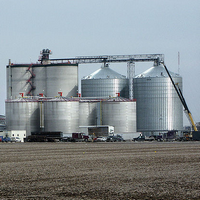Biofuels were hailed in the first half of the last decade as a green solution to reliance on imported petroleum, and a savior to farmers seeking higher prices for commodities in surplus. But in the second half of the decade, biofuels emerged as real and imminent threats to both environmental quality and food security, while being a costly and ill-conceived response to energy concerns. Agriculture and energy ministers met at a high-level conference at the Food and Agriculture Organization (FAO) in Rome in June 2008, and essentially glossed over these issues in endorsing continued government subsidies to the biofuels question. It is past time to take stock of the escalating subsidies to biofuels, related to three issues: impacts on the global environment, threats posed to food security in poor nations and its high-cost path to energy security.
Growth and Development of the Biofuels Sector
Investments in biofuels have grown rapidly since 2000, accelerating especially in OECD countries and Brazil after 2003, when oil prices began to climb above $25 per barrel to approach $120 a barrel in April 2008. Between 2001 and 2007, world production of ethanol tripled from 18.5 billion liters to almost 60 billion liters, while biodiesel rose from 1 billion liters to 9 billion liters, almost ten-fold. Together, the U.S. and Brazil account for most of the world's ethanol production, with roughly equal shares. Biodiesel, the other major biofuel, is produced mainly in the EU, which produces roughly five times that of the U.S. However, a growing number of developing countries are beginning to invest in feedstocks for the production of ethanol and biodiesel and are watching both the progress and pitfalls of Brazil, the EU and the U.S.

